Art Tips from History
Practice makes perfect.
The secret to success is consistency of purpose.
Plan your work, and work your plan.
Successful specialists have been quoted for centuries espousing the elements of frequent practice as the golden mean towards any sort of mastery.
If talent is inherited, and luck is random, we have no control over the portions served to us.
What we do have complete control over is discipline and practice.
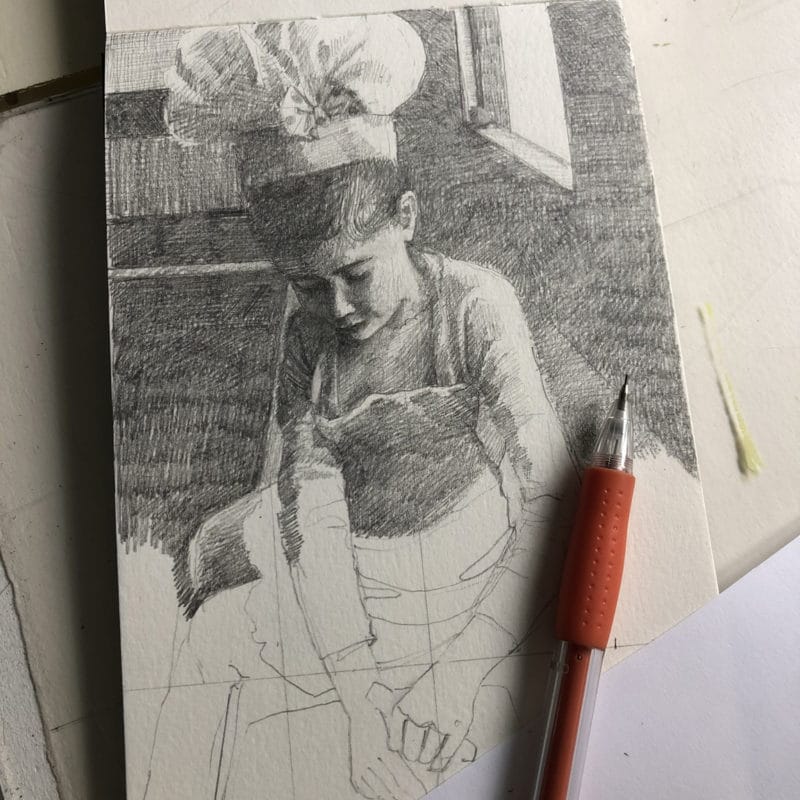
How to Talk Yourself into Painting More Often
If you’re not making art on a regular basis, and a well-meaning friend or family member tries the ‘How Badly Do You Want It?’ pep talk, ignore them. If that question is coming from you, duck-tape the mouth of that thought.
Asking to quantify your need for creativity implies that if you’re not fitting art into your life, you must not truly want it. We both know you want it, and crave it. Being creative – for one inclined toward such things – is as integral as breathing. Deep, satisfied breathing.
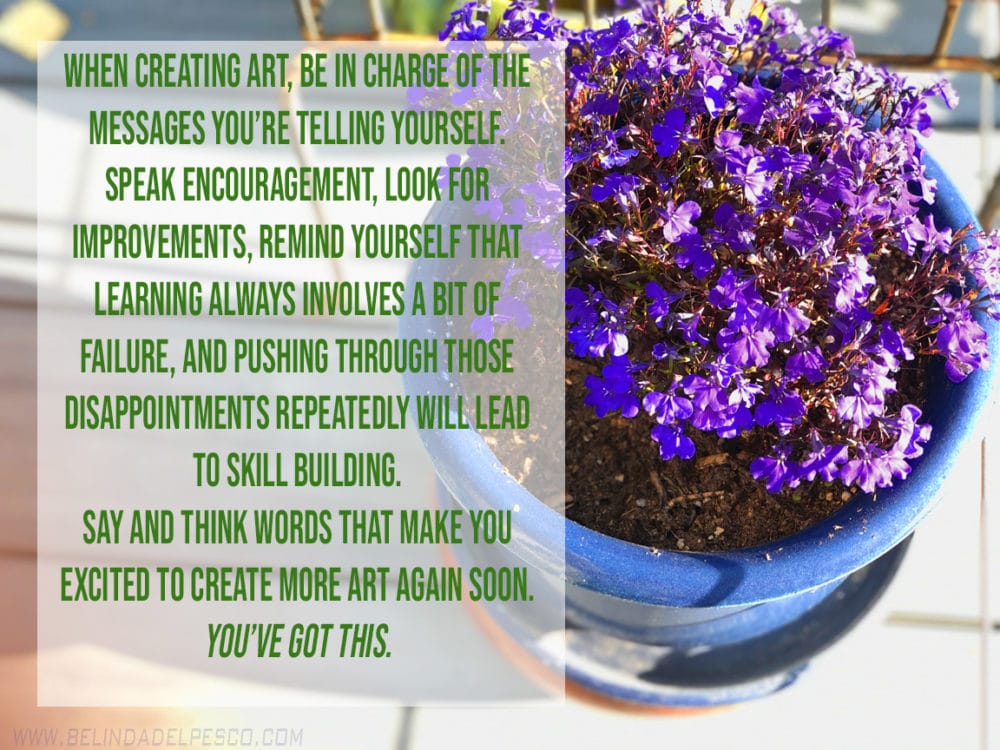
Dreaming vs Practicing
Asking how badly you really want to include creativity in your life is a woefully simplified appraisal. It doesn’t explain what to do with a herd of children to manage, or an exhausting job, or little means for supplies, or the lack of access to instruction. And nowhere in that question is a door to bolt against the goblin cloaked as fear of failure.
Making room in your life for creativity has to come in practical, baby steps. And it must be accompanied by a commitment to reign in disparaging self-talk.
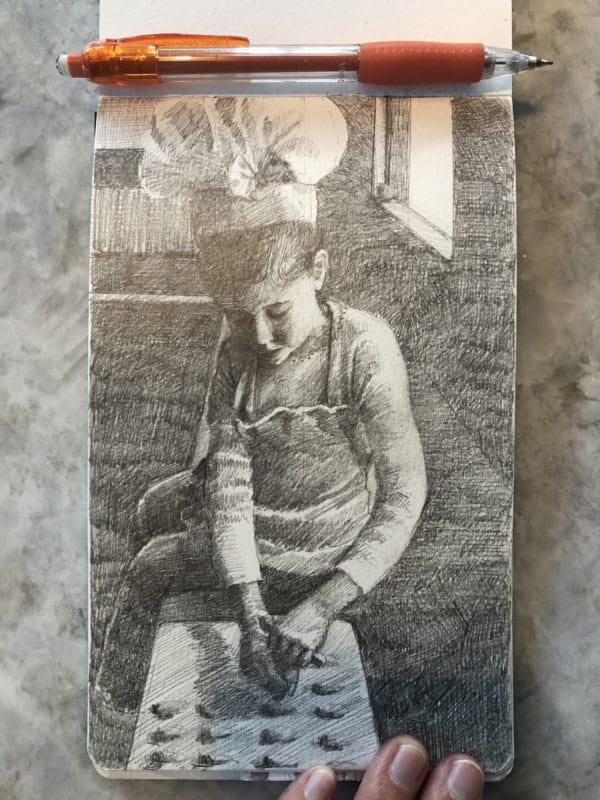
Pay Attention to Yourself
In the midst of encouraging a friend on a new watercolor, she stops me to point out everything that went terribly wrong. I relay something that worked well, and quick as a whip, she counters with another ailment. It’s like playing tennis; I serve a compliment, and she volley’s a criticism, over and over.
After a few rounds, we’re arguing over the rank unworthiness of a sweet beginner’s watercolor.
I begin to realize the cycle of self-criticism is so practiced and harsh, and so engrained, that it has control over the person reciting it, to the last word. That’s called a habit. An art-crushing, learning-stalled, terrible habit.
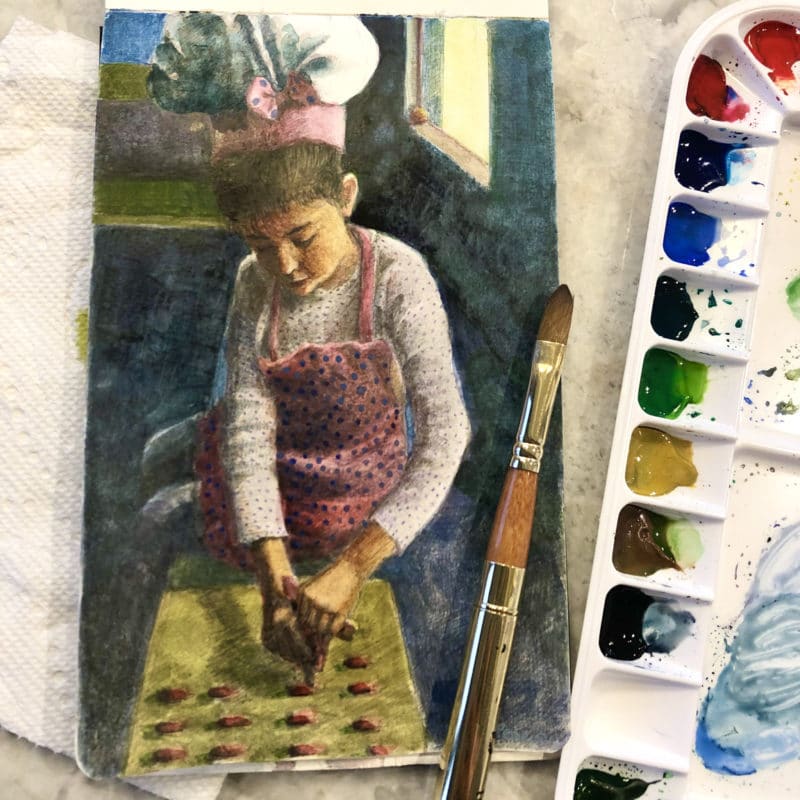
How Do You Get Better at Something Hard?
Negative review of your own work is an irrevocable approach to inhibit your practice. Unchecked frustration will slow the progress of your skills.
When you catch yourself thinking harsh thoughts while making art, find a photograph of you at the age of 6 or so. Tape it to your workspace.
Now, imagine saying those discouraging, critical things to that child as they hand you their latest attempts at something creative. You’d never say harsh criticisms to a child, would you? I didn’t think so. If a photo of yourself doesn’t work, choose a photo of one of your kids, or a grandchild.
That’s what we are as beginner artists. Just kids, with a brush, some pencils, and pigments, and a wish to create. Go easy on your inner kid.
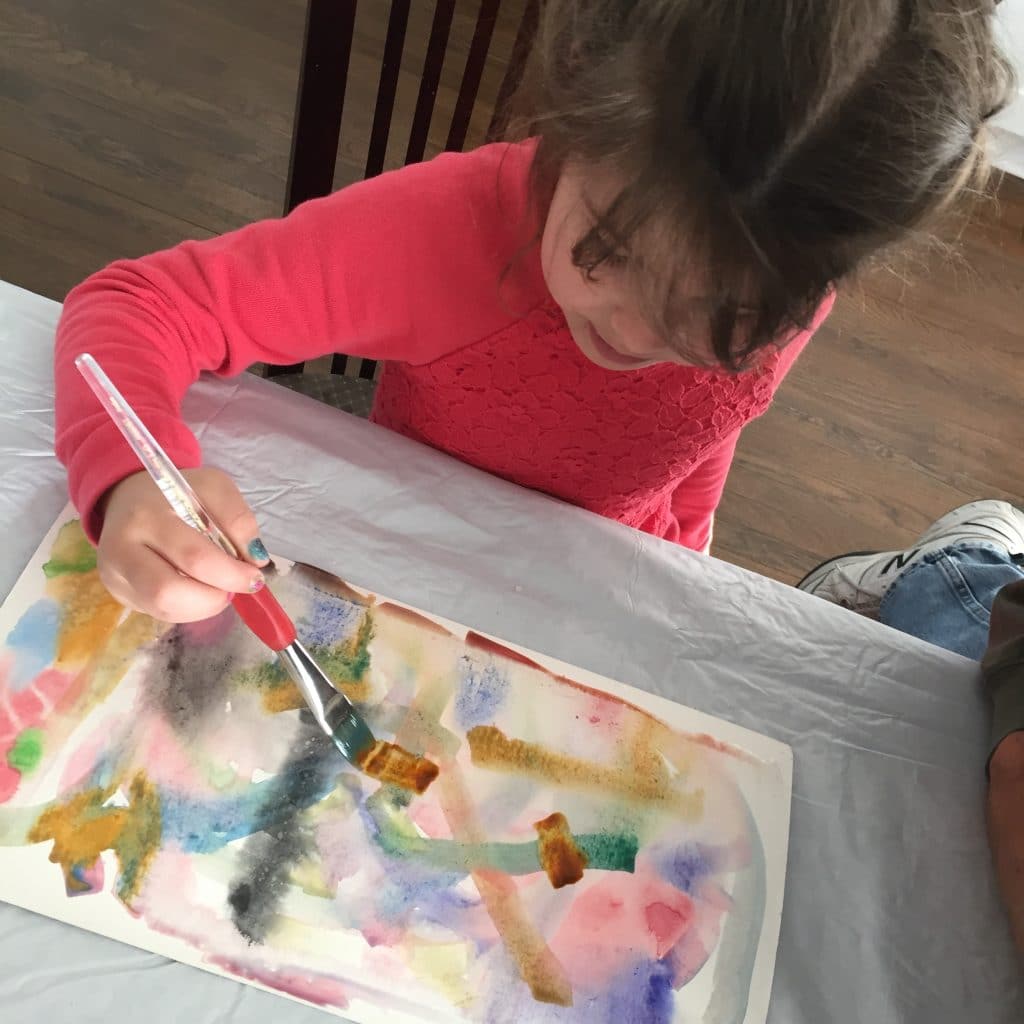
Create for the Process, Not the Outcome
If a six year old handed you a stick figure missing an arm, you’d find something encouraging to say. Because we all know encouragement works better at sustaining a practice. That rule never changes, for the rest of our lives.
Compare your work to the art you made last month. No comparisons to accomplished, masterful artists allowed.
When surveying your art, put as much scrutiny and conviction into finding what worked – compared to how you previously used that same determination to search for flaws.
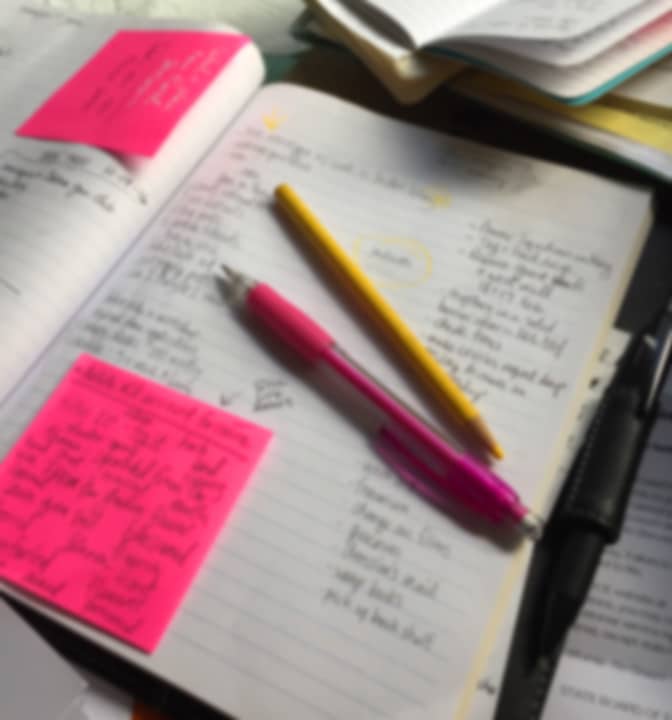
Harvest the Good Stuff
While looking for the happy accidents, and signs of progress, take some notes (really, write it down).
Comment on colors, brushwork and approaches you’d like to try in your next piece. This will help dissolve frustration, because you’re actively thinking about, and planning your next painting session. Moving forward.
Commit to researching a solution to something you struggled with in your last painting.
Don’t be victimized by what you don’t know. Notice when you stew on a challenge with no action. (My friend BJK used to mimic this approach by murmuring in monotone – ‘ Don’t mind me. I’ll be over here, in the corner, eating a can of worms.’) Get up from that corner.
Search google and watch youtube video tutorials to make creative decisions on your next painting. Get yourself off the struggle-bus. You’ve *got* to paint more often.
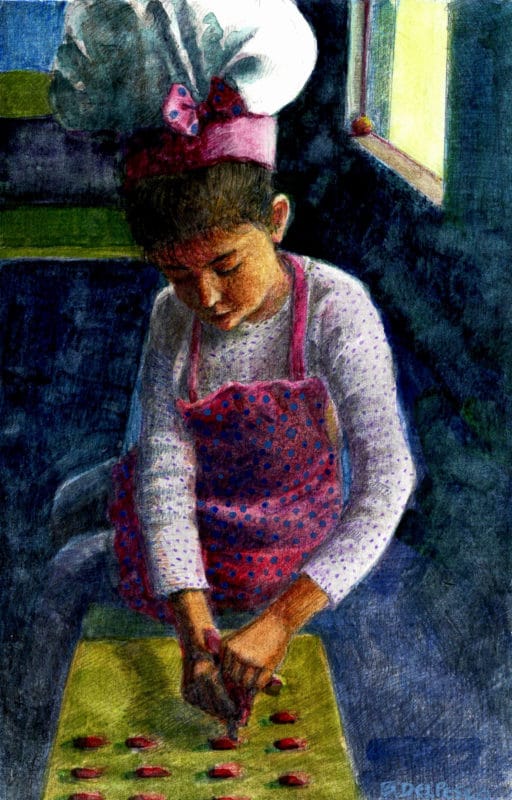
Talking to Myself
As usual, I’m talking to myself here. This week, I feel like I forgot how to draw. Maybe it’s just a lack of focus. Perhaps bad news and worries are bedeviling my noticing skills. I can’t seem to scan a shape and recall it long enough to sketch what I just saw.
If you’re in the same boat this week, let’s take a collective deep breath, and re-commit to the salve of art-making. We can preserve the space where we create things as sacred, and encouraging, so the tenderest parts of us feel the need to return to it, over and over again for shelter.
Thanks for stopping in, and I’ll see you in the next post.
Belinda
P.S. Watch this 2 minute video and read the accompanying essay from CNN: they asked nine artists why it’s important to be creative during a Pandemic.
P.S.S If you know someone who belittles their creative results, share this with them.
Art Quote
Perhaps creativity’s greatest mercy is this: By completely absorbing our attention for a short and magical spell, it can relieve us temporarily from the dreadful burden of being who we are. Best of all, at the end of your creative adventure, you have a souvenir – something that you made, something to remind you forever of your brief but transformative encounter with inspiration.
Elizabeth Gilbert, Big Magic
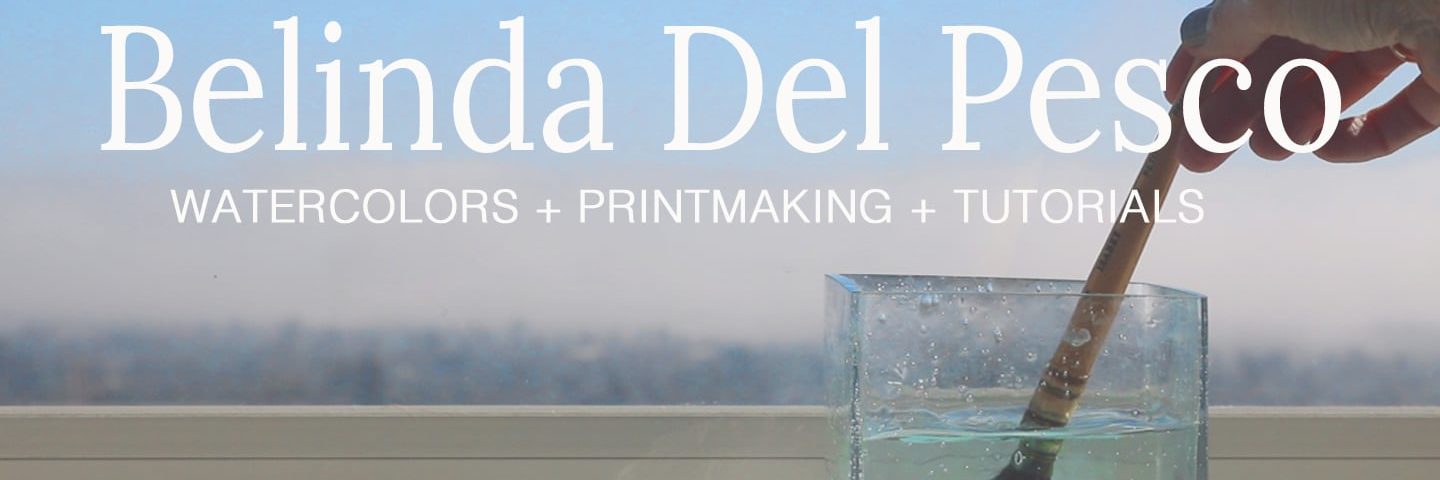

Hi Sue, I’m so glad this post resonated with you! Thanks for letting me know the active problem-solving style of critiquing is working for you. I hope those excellent steps you just took create a life-long habit of marching forward with your art. Carry on, my friend!
Another brilliant post. Thank you so much for the encouragement and I have already tried out your advice at critiquing my work. It’s SO helpful! I never know what direction I’m going in, but this approach focused me to try again and attempt a new approach from a YouTube video 😁
Hi neighbor! 💜😊 I love your blog. I’ve gained courage. Thank you so much. 🤓
Hi there PJF! Yahoo and a cupcake on your newly acquired courage! Applause – all the way up the coast to you! Carry on!
I love you for these beautiful, encouraging, understanding words❣️
Thanks for that warm hug, Jo Ann! Here’s to a walk outside today, just to marvel at birdsong, and the particular shade of blue we’ll see in the sky.
(Sorry. Hit Ctrl-Enter by mistake.)
Great post, and thanks for the mention 😉 !
A lot of what you have to say, it seems to me, also applies to those of us trying to learn a new programming language. From that realm, here is an additional piece of advice that is pretty much universally given by good programmers: code for one half-hour per day, every day.
(I find that advice works best if I think of “every day” as “every work day;” i.e., giving myself planned days off is far better than not doing something on a given day, and thus, having another thing to beat myself up with.)
There are two aspects to the half-hour aspect: First, if you commit to this line of thinking, half an hour doesn’t seem like a huge chunk of time that you have to budget for. You can think of it as, say, “All right, I’ll knock of my half hour while I’m waiting for the rice to cook.” Second, if you *only* allow yourself to work for that half hour, you find yourself, the next day, looking forward to the next half hour. Of course there is no reason not to continue if you’re on a roll, but be aware that a marathon session can leave you feeling extra uninspired the next day. And by “you” I mean “me,” of course.
30 minutes a day, Monday through Friday – so what is that – 2 and a half hours a week? That doesn’t seem like a high price to pay on the road to mastery, right? Folks always say to break down the big stuff into manageable parcels, so learning a complex thing with potential frustration hiccups qualifies. And I love the idea of a side hustle. “Yeah, I’m working to get myself awesome at ______ while my rice cooks.” BOOM! 🎙 ⬇️ 💥
Great post! (And thanks for the mention. 😉 )
It’s always a pleasure (and a chuckle) to mention you. I think I should write a whole post on the color Horrid-Orange, if I could just find a good example…
You really tapped into something that I ( & it sounds like many others) have been struggling with for the 2 years I’ve been sketching & painting. Literally afraid to pick up the brush because I am sure my last good watercolor creation was an “accident” and I really cant do this! Your article is a terrific insight and an action plan to keep moving forward. Thank you!
Harriet
Hello Harriet, I’m cheerleading in my more limber, long ago self, with pompoms and nimble leaps that you’ll pick up that paint brush, and give yourself a day to play with paint and paper and water – *without* any attempt at a masterpiece. Just blend colors, make washes, experiment with glazing, do a little color lifting, etc. Make a date with your art supplies for the sheer practice.
Wow! You also have days when you just can’t draw? Thinking about why, a distraction of worry or not feeling well…I never thought to ask that question so that is helpful but just knowing a skilled person like you also has days when the pencil just doesn’t seem to work is useful to know. My art evolution has been a long journey of acquiring self=esteem, and at 70 still hinders my enjoyment. And now I the added challenge of loosing ability due to aging and health issues. But thanks to your monoprint videos. I am currently working on turning some of my drawings into monoprints and just playing.
Hello Diane, Bravo to you for turning drawings into monoprints, and focusing on the PLAY aspect of art-making! I think people don’t anticipate the loss of art-making abilities due to aging or infirmary. But I know so many who gave up art altogether because of just that. I’m glad to know you’re leaping over those obstacles like a gazelle! Do keep at it. And know that you have a lot of company on those days when the pencil just won’t obey our visions for where it should go. We will persevere through it together.
I needed your friendship today and this advice came at just the right time. Thankyou!
Good morning, Holly – Let’s rewind, and start fresh today, shall we? Off to find pencil and paper…💕
I sure need that today!!!Thank you!!!
Hi Linda,
You and me, both! Thanks for stopping in…
Lovely encouraging thoughts!
Good morning, Corinne! I’m glad. Thanks for your visit!